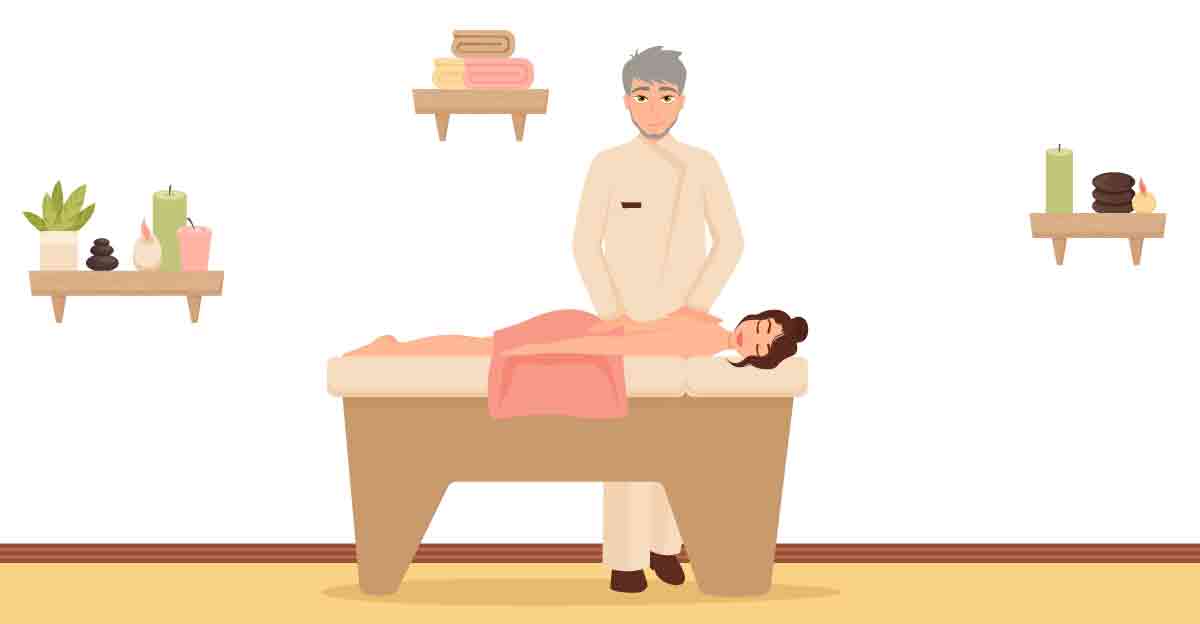Discovering the Healing Power of Aromatherapy in Spa Treatment
Aromatherapy is a holistic therapeutic technique that uses plant-derived essential oils to help balance and well-being. It involves the use of aromatic plant extracts through various methods such as inhalation, massage, and baths. These essential oils are highly concentrated and contain the natural essence, fragrance, and therapeutic properties of the plants they are derived from.
When it comes to relaxation and rejuvenation, there’s nothing quite like discovering the healing power of aromatherapy in a spa treatment. If you’re searching for the best aromatherapy massage near me, look no further than the soothing oasis of a reputable spa. These havens of tranquility often utilize the benefits of bath and body works aromatherapy products, specifically tailored to enhance your well-being.
By incorporating the use of carefully selected aromatherapy essential oils, massage therapists create a truly holistic experience that engages your senses and promotes deep relaxation. Whether you’re seeking relief from stress, or muscle tension, or simply want to unwind, aromatherapy can be a game-changer. The delicate scents and therapeutic properties of the essential oils work in harmony to help you achieve a state of tranquility, making it an ideal choice for those dealing with anxiety.

Aromatherapy has long been recognized as a powerful tool for promoting mental and emotional well-being. The soothing effects of specific essential oils can be remarkably effective in reducing anxiety and restoring inner balance. During an aromatherapy massage, the skilled therapists incorporate carefully selected blends that target anxiety, helping you find relief and relaxation.
The enchanting fragrances of lavender, chamomile, and bergamot are often used in these treatments, as they are known for their calming properties. As the massage therapist expertly applies the aromatic oils to your body, you’ll feel the tension melting away and a sense of calm washing over you. The combination of the therapist’s touch and the therapeutic benefits of aromatherapy for anxiety creates a harmonious experience that leaves you feeling refreshed, rejuvenated, and ready to face the world with renewed serenity.
The Origins of Aromatherapy
Aromatherapy has been used for thousands of years across different cultures. Ancient civilizations, including the Egyptians, Greeks, and Chinese, recognized the therapeutic benefits of essential oils and incorporated them into their healing practices. The art of aromatherapy was passed down through generations, and today it continues to evolve as a popular alternative therapy.
Understanding Essential Oils
Essential oils are volatile plant compounds that are extracted through methods such as steam distillation or cold-pressing. Each essential oil has unique properties and benefits due to its chemical composition. Some oils are known for their calming and sedative effects, while others are energizing and invigorating. It is important to understand the characteristics of different essential oils to create customized blends for specific needs.
Benefits of Aromatherapy in Spa Treatment
Relaxation and Stress Reduction
Aromatherapy is renowned for its ability to induce relaxation and reduce stress levels. The inhalation of calming essential oils such as lavender, chamomile, and ylang-ylang can promote a sense of tranquility and help alleviate anxiety. When used in massage, these oils can further enhance relaxation by easing muscle tension and promoting a deep sense of calm.
Pain Relief and Muscle Tension Release
Certain essential oils possess analgesic properties that can provide relief from pain and ease muscle tension. Oils such as peppermint, eucalyptus, and ginger have a soothing effect on sore muscles and joints. Aromatherapy massage with these oils can help reduce inflammation, improve circulation, and accelerate the healing process.
Improved Sleep and Mood Enhancement
Aromatherapy can have a profound impact on sleep quality and mood enhancement. Essential oils like lavender and bergamot are known for their sedative properties, promoting better sleep patterns and combating insomnia. Additionally, uplifting oils such as citrus oils and rosemary can uplift mood, reduce feelings of depression, and increase mental alertness.
Boosting Energy and Mental Clarity
Aromatherapy can also be used to boost energy levels and enhance mental clarity. Essential oils like peppermint, lemon, and rosemary have invigorating properties that stimulate the mind and increase focus. These oils can be diffused or inhaled to combat fatigue, improve concentration, and enhance productivity.
Skin Rejuvenation and Nourishment
The topical application of certain essential oils can rejuvenate and nourish the skin. Oils like tea tree, rosehip, and geranium possess antibacterial and anti-inflammatory properties, making them effective in treating acne, scars, and other skin conditions. Aromatherapy facials and body treatments can leave the skin refreshed, hydrated, and glowing.
Supporting Overall Health and Well-being
Beyond its immediate benefits, aromatherapy supports overall health and well-being. Reducing stress, improving sleep, and enhancing mood, contributes to a healthier lifestyle. The therapeutic effects of aromatherapy extend beyond the spa treatment, promoting a sense of balance and harmony in daily life.
Headache Relief and Migraine Management
Aromatherapy can be effective in alleviating headaches and managing migraines. Essential oils like peppermint, lavender, and eucalyptus have analgesic and calming properties that can help relieve head pain. Inhalation or topical application of these oils, along with gentle massage, can provide soothing relief and reduce the intensity and frequency of migraines.
Immune System Support
Certain essential oils have immune-boosting properties that can support overall health and well-being. Oils like tea tree, eucalyptus, and lemon have antimicrobial and antiviral effects that can help strengthen the immune system and protect against common illnesses. Using these oils in diffusers or adding them to homemade cleaning products can create a healthier environment.
Digestive Aid
Aromatherapy can aid in improving digestion and relieving common digestive issues. Essential oils such as ginger, peppermint, and chamomile have carminative and antispasmodic properties that can help reduce bloating, indigestion, and stomach discomfort. Inhalation or gentle abdominal massage with these oils can promote healthy digestion and alleviate gastrointestinal symptoms.
Emotional Balance and Stress Management
Aromatherapy plays a significant role in emotional balance and stress management. Essential oils like frankincense, bergamot, and clary sage have calming and mood-stabilizing effects that can help reduce anxiety, depression, and emotional stress. Diffusing these oils or using them in baths or personal inhalers can provide emotional support and promote a sense of well-being.
Popular Aromatherapy Essential Oils
Lavender
Lavender essential oil is widely recognized for its calming and relaxing properties. It can soothe anxiety, promote better sleep, and relieve headaches.
Peppermint
Peppermint essential oil has invigorating and cooling properties. It can alleviate headaches, boost energy levels, and aid digestion.
Eucalyptus
Eucalyptus essential oil is known for its refreshing and decongestant qualities. It can relieve respiratory issues, clear sinuses, and promote a sense of vitality.
Chamomile
Chamomile essential oil has gentle and soothing effects. It can reduce inflammation, soothe skin irritations, and promote relaxation.
Tea Tree
Tea tree essential oil possesses antimicrobial and antiseptic properties. It can treat acne, and fungal infections, and support a healthy immune system.
Lemon
Lemon essential oil is refreshing and uplifting. It can improve mood, boost immune function, and enhance mental clarity.
Incorporating Aromatherapy in Spa Treatments
Aromatherapy can be integrated into various spa treatments to maximize its benefits. Here are some common methods of incorporating aromatherapy:

Aromatherapy Massage
Aromatherapy massage involves the use of essential oils combined with therapeutic massage techniques. The oils are applied to the skin and absorbed into the body, providing both physical and emotional benefits.
Aromatherapy Bath
Aromatherapy baths are relaxing and indulgent experiences. A few drops of essential oils are added to warm bathwater, allowing the therapeutic properties of the oils to penetrate the body through inhalation and skin absorption.
Aromatherapy Inhalation
Inhalation of essential oils can be done directly or through the use of diffusers or inhalers. This method allows the aroma to stimulate the olfactory system, influencing mood and emotions.
Aromatherapy Diffusion
Aromatherapy diffusers disperse essential oils into the air, filling the space with fragrance and therapeutic benefits. Diffusion is an effective way to purify the air, create a relaxing ambiance, or boost energy levels.
Aromatherapy Wrap or Compress
Aromatherapy wraps or compresses involve applying hot or cold towels infused with essential oils to specific areas of the body. This method is commonly used to relieve pain, reduce inflammation, or promote relaxation.
Precautions and Safety Guidelines
Aromatherapy is a popular practice that involves the use of essential oils derived from plants to promote well-being and enhance physical and mental health. While it is generally considered safe, it is important to take certain precautions and follow safety guidelines to ensure its proper and safe use.
Dilution: Essential oils are highly concentrated substances and should not be applied directly to the skin without dilution. Most essential oils need to be mixed with carrier oil, such as coconut oil or almond oil, before applying to the skin. Dilution helps to reduce the risk of skin irritation or sensitization. The recommended dilution ratio is typically 1-2% for adults, meaning 1-2 drops of essential oil per teaspoon of carrier oil.
Patch Testing: Before applying an essential oil to a larger area of the skin, it is advisable to perform a patch test. This involves applying a small diluted amount of the essential oil to a patch of skin, typically on the forearm, and observing for any adverse reactions like redness, itching, or swelling. If any negative reactions occur, it is best to avoid using that particular essential oil.
Allergic Reactions and Sensitivities: Some individuals may have allergies or sensitivities to certain essential oils. It is important to be aware of your sensitivities and reactions to different oils. Common allergenic essential oils include lavender, tea tree, and citrus oils. If you have a known allergy to a specific plant or substance, it is recommended to avoid essential oils derived from that source.
Consultation for Pregnant Women, Medical Conditions, and Children: Pregnant women, individuals with specific medical conditions (such as epilepsy, asthma, or high blood pressure), and young children have special considerations when using essential oils. These individuals must consult with a healthcare professional or a qualified aromatherapist before using any essential oils. Some oils are contraindicated during pregnancy or may interact with medications, so professional guidance is essential to ensure safety.
Ingestion: Ingesting essential oils is generally not recommended unless under the guidance of a qualified aromatherapist, herbalist, or healthcare professional who is knowledgeable about internal use. Internal use should be approached with caution and only after proper education and guidance.
Storage and Handling: Essential oils should be kept in cool, dry locations away from direct sunlight in dark glass bottles that are well sealed. This aids in maintaining their efficacy and halting oxidation.
Quality and Purity: It is important to choose high-quality, pure essential oils from reputable sources. Look for oils that are labeled as 100% pure, therapeutic-grade, or certified organic. Adulterated or low-quality oils may not provide the desired therapeutic benefits and can potentially cause adverse effects.
Remember, while aromatherapy can offer many benefits, it is essential to use essential oils responsibly and follow safety guidelines. If you have any concerns or questions, it is always best to consult with a healthcare professional or a qualified aromatherapist who can provide personalized advice based on your specific needs and circumstances.
Conclusion
Aromatherapy, with its powerful combination of essential oils and spa treatments, offers a holistic approach to healing and well-being. From relaxation and stress reduction to pain relief and skin rejuvenation, aromatherapy has a wide range of benefits that enhance both physical and emotional health. By incorporating the healing power of aromatherapy into your spa treatments, you can experience a heightened sense of relaxation, balance, and overall well-being.
